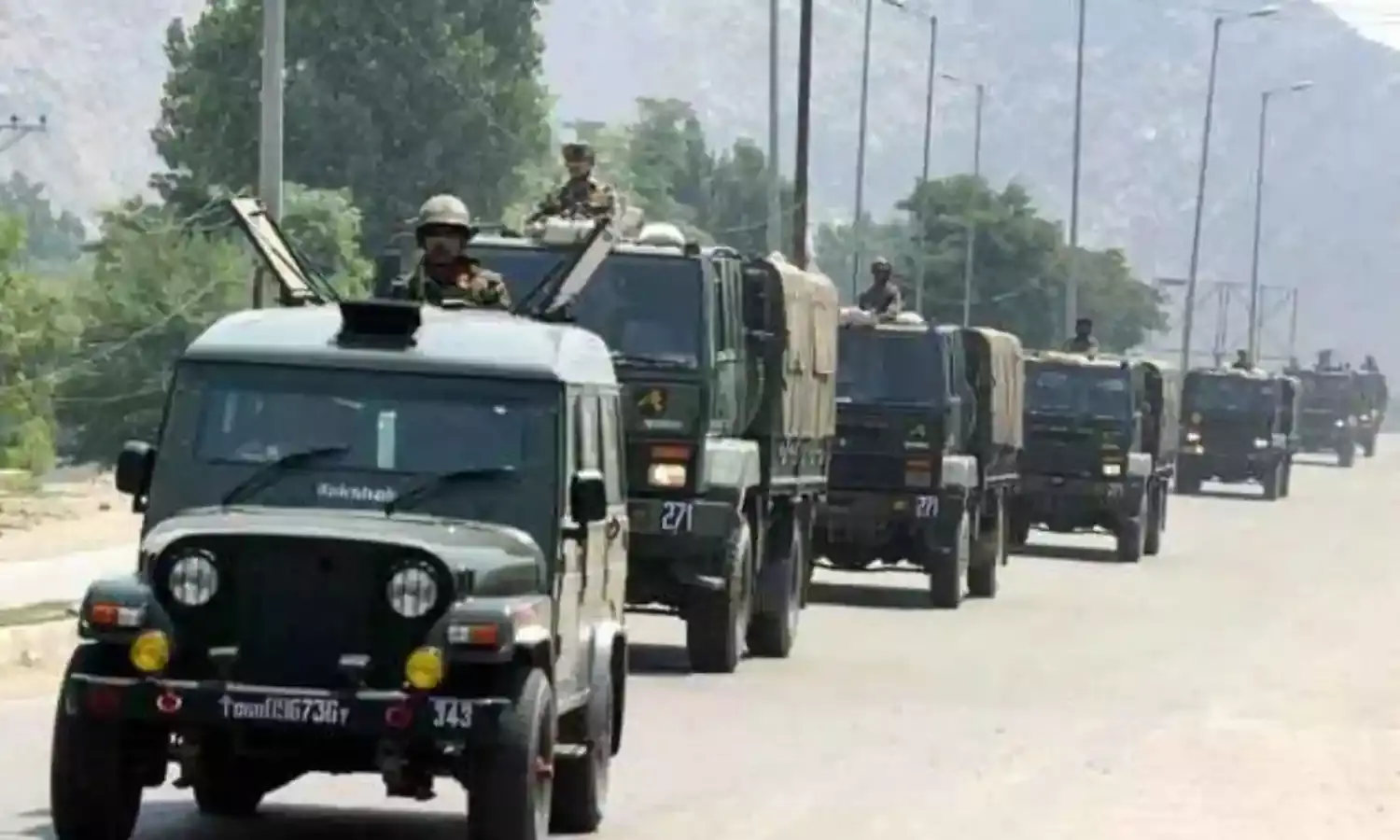Kashmir Protests Decision to Shut Down National Highway for Civilians 2 Days a Week
Only Army and other forces movement allowed two days a week
SRINAGAR: In the aftermath of the February 14 suicide bombing, the Jammu and Kashmir administration’s decision to shut down the national highway for civilian traffic on two days in a week has caused uproar in Kashmir Valley.
The controversial decision was taken yesterday to allow the movement of Army and other forces who will be deployed for election duties in the Valley during the upcoming Lok Sabha and state assembly polls.
Former J&K chief minister Ghulam Nabi Azad said the government should devise a ‘people friendly strategy’ to ensure both safety of troops and hassle free movement of civilians on Jammu-Srinagar highway.
“Security of the forces is paramount but at the same time traffic between Kashmir and Jammu is equally important. I think the government should have found a solution like half day usage of road for both instead of completely shutting it down for two days in a week,” Azad said.
According to an official spokesperson, the move has been taken “keeping in view the large movement of Security Forces on the national highway during the Parliamentary Elections and associated possibility of any fidayeen terror attack on Security Forces’ Convoys.”
“The state government has notified specified days in a week for the movement of Security Forces from Srinagar to Jammu. During these days, no civilian traffic would be allowed on National Highway,” the spokesperson said in a statement on Wednesday.
Addressing a rally in north Kashmir’s Rafiabad, former chief minister Omar Abdullah asked the Governor to review the decision, saying that security forces could be moved from Baramulla to Banihal and vice-versa using the railway network.
The J&K government yesterday ordered that the key highway, the only all-weather surface link that connects Kashmir with the rest of the world, will be used “exclusively” for movement of forces on Sunday and Wednesday.
“There would be a complete ban on civilian traffic on the National Highway during these two days from 4 AM to 5 PM. This prohibition would be from Baramulla through Srinagar, Qazigund, Jawahar-Tunnel, Banihal and Ramban till Udhampur,” the order said.
The decision however didn’t go down well in the Valley with people accusing the administration and the BJP-led central government of using “coercive measures” as a “collective punishment” for Kashmiris.
“Another anti-people dictatorial move of the government to close the national highway for two days which will cause great distress to people. Government should withdraw this diktat and stop punishing people of Kashmir,” moderate Hurriyat chief Mirwaiz Umar Farooq said in a tweet.
Common people in Kashmir are also not happy with the decision. Journalist Peerzada Ashiq termed the ban as a “collective punishment” for Kashmiris.
“Enforcing a collective punishment, J&K govt. bars civilian traffic on 270-km highway in Kashmir twice a week, from 4 a.m. till 5 p.m. Dying patients, ambulances, students' examination, marriages, funerals, couple-long-drive should match the calendar,” he said on Facebook.
The move to shut highway comes after the union home ministry reworked plan for movement of forces in Jammu and Kashmir in the aftermath of the deadly suicide bombing in Lethpora of Pulwama on February 14 which left at least 49 paramilitary troopers dead and dozens more were injured.
The move however evoked resentment among common people of Kashmir.
“The civilian movement ban on Varmul-Udhampur highway every Wednesday and Sunday would be a humanitarian and economic catastrophe for Kashmir. For God's sake, let Delhi and Islamabad talk now and get the poor and hapless Kashmiris out of this unbearable pain and trauma!,“ Arjumand Talib, an editor, said.
“Are Kashmiris, from Baramullah to Udhampur , allowed to fart on Wednesdays and Sundays, between 4am to 5pm?,” Tariq Jameel, a chartered accountant wrote.
“Monday, Tuesday, Convoy, Thursday, Friday, Saturday, Convoy,” Sartaj Madni, a J&K government officer, wrote on Facebook.
Sameer Lone, who works as a journalist in Hyderabad said he was planning to come on vacations to Kashmir on Sunday, “I was planning to go home next Sunday. So how wud I go from the airport to Shopian, since Highway will be closed. Any help?”
“The only ban yet to be imposed is on normal breathing process. This is, in essence, an Operation All Out against the people of Kashmir. Imagine the fate of patients on life-saving drugs needing medical attention, expecting women who would need to visit hospitals, and new born babies needing medical care!,” journalist and political commentator Gowhar Geelani wrote.
The Pulwama suicide bombing triggered uproar in the country, prompting a diplomatic row between New Delhi and Islamabad which culminated with the Balakot strikes in which Indian air forces targeted a Jaish-e-Mohammad training camp and killed more than 250 militants, a claim denied by Islamabad.A day after the Balakot strikes, Pakistan downed an Indian Mig-21 Bison and captured its pilot, bringing the two nuclear powers on the brink of war. However, the Pakistan PM Imran Khan’s announcement that the captured pilot will be handed back to New Delhi led to significant easing of tensions.





